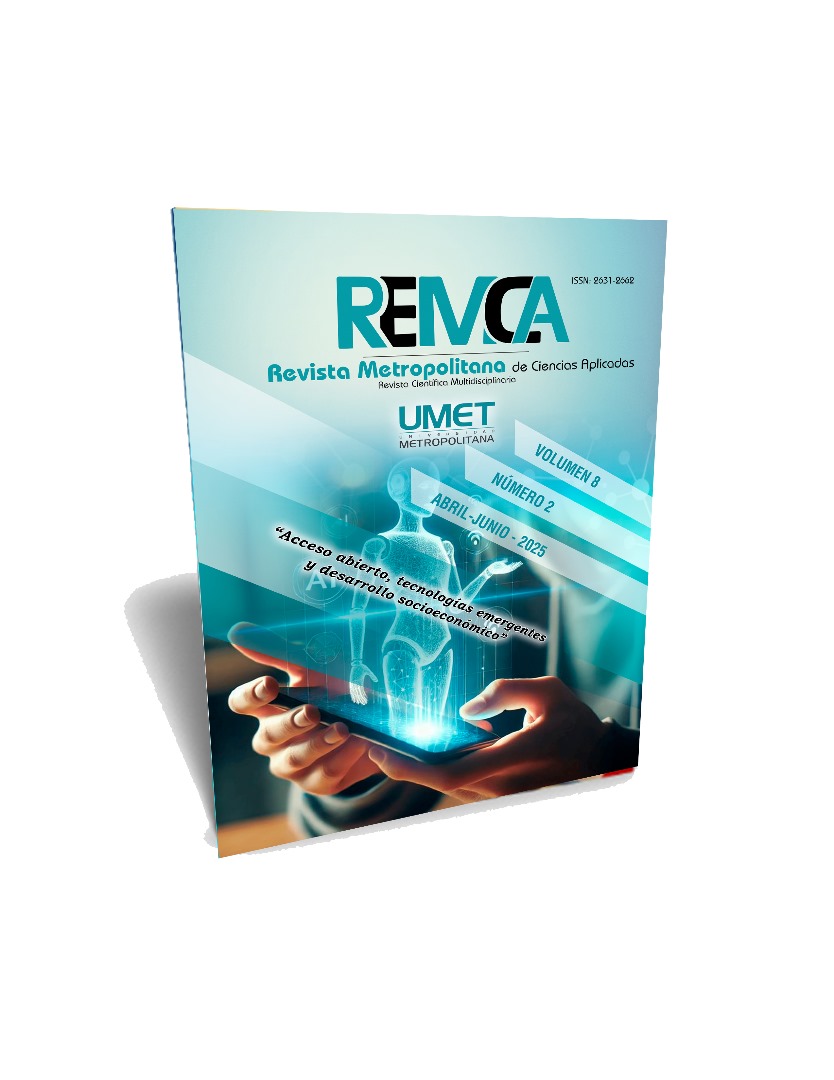Application of generative artificial intelligence in the creation of university statistics programs: an innovative approach
DOI:
https://doi.org/10.62452/y0ty7q58Keywords:
Generative artificial intelligence, basic education, study program design, promptAbstract
This work analyzes the design of a basic statistics study program applied to the university environment, using generative artificial intelligence tools such as ChatGPT. The main objective was to develop an innovative course that integrates theoretical and practical content through advanced technologies, focusing on the analysis and interpretation of data with tools such as Excel and SPSS. The design process included the structuring of objectives and content, the automated generation of educational resources through specific prompts, and iterative validation to guarantee pedagogical quality. The applied methodology focused on problem-based activities, promoting key competencies such as critical thinking, problem solving and the preparation of statistical reports relevant to the university educational and administrative context.
Downloads
References
Azaria, A., Azoulay, R., & Reches, S. (2023). ChatGPT is a Remarkable Tool For Experts. arXiv. https://doi.org/10.48550/arXiv.2306.03102
Choque Castañeda, M. G., & Romero, G. P. (2023). Impacto del uso de ChatGPT en la educación superior: Una Revisión Sistemática. EduTicInnova - Revista de Educación Virtual, 11(1), 9-18. https://portalrevistas.aulavirtualusmp.pe/index.php/eduticinnova/article/view/2671
Fernández Marín, M. Á., Montano-Rodríguez, F., González-Tolmo, D., & Manso-Rivero, Y. (2024). Interdisciplinariedad entre la materia de Sistemas de Gestión de Bases de Datos e inteligencia artificial de Universidad Metropolitana del Ecuador. Revista Mexicana De Investigación E Intervención Educativa, 3(2), 81–88. https://doi.org/10.62697/rmiie.v3i2.87
García Peñalvo, F. J. (2024). Inteligencia artificial generativa y educación: Un análisis desde múltiples perspectivas. Education in the Knowledge Society (EKS), 25. https://doi.org/10.14201/eks.31942
Giannini, S. (2023). Generative AI and the future of education. UNESCO. https://unesdoc.unesco.org/ark:/48223/pf0000385877
IGNITE Copilot. (2024). Desafiando el Status Quo: La Inteligencia Artificial Generativa y su Revolución en la Educación. https://ignitecopilot.ai/desafiando-el-status-quo-la-inteligencia-artificial-generativa-y-su-revolucion-en-la-educacion/
Organización de las Naciones Unidas para la Educación, la Ciencia y la Cultura. (2024). La inteligencia artificial generativa en la educación. https://www.unesco.org/es/articles/la-inteligencia-artificial-generativa-en-la-educacion-documento-de-reflexion-de-sra-stefania
Perezchica Vega, J. E., Sepúlveda Rodríguez, J. A., & Román-Méndez, A. D. (2024). Inteligencia artificial generativa en la educación superior: Usos y opiniones de los profesores. European Public & Social Innovation Review, 9, 1-20. https://doi.org/10.31637/epsir-2024-593
Tizirides, A., Tzirides, Saini, A., Zapata, G., Searsmith, D., Cope, B., Kalantzis, M., Castro, V., Kourkoulou, T., Jones, J., Abrantes da Silva, R., Whiting, J., & Kastania, N. P. (2023). Generative AI: Implications and Applications for Education. arXiv. https://doi.org/10.48550/arXiv.2305.07605
Vera, F. (2023). Integración de la Inteligencia Artificial Generativa en la Educación Superior. Transformar, 4(4), 34-46. https://www.revistatransformar.cl/index.php/transformar/article/view/108
Zuber, N., & Gogoll, J. (2023). Vox Populi, Vox ChatGPT: Large Language Models, Education and Democracy. arXiv. https://doi.org/10.48550/arXiv.2311.06207
Downloads
Published
Issue
Section
License
Copyright (c) 2025 Miguel Ángel Fernández-Marín (Autor/a); María del Carmen Chávez-Cárdenas (Traductor/a); Freddy Montano-Rodríguez, Débora González-Tolmo (Autor/a)

This work is licensed under a Creative Commons Attribution-NonCommercial-ShareAlike 4.0 International License.
Authors who publish in Revista Metropolitana de Ciencias Aplicadas (REMCA), agree to the following terms:
1. Copyright
Authors retain unrestricted copyright to their work. Authors grant the journal the right of first publication. To this end, they assign the journal non-exclusive exploitation rights (reproduction, distribution, public communication, and transformation). Authors may enter into additional agreements for the non-exclusive distribution of the version of the work published in the journal, provided that acknowledgment of its initial publication in this journal is given.
© The authors.
2. License
The articles are published in the journal under the Creative Commons Attribution-NonCommercial-ShareAlike 4.0 International License (CC BY-NC-SA 4.0). The terms can be found at: https://creativecommons.org/licenses/by-nc-sa/4.0/deed.en
This license allows:
- Sharing: Copying and redistributing the material in any medium or format.
- Adapting: Remixing, transforming, and building upon the material.
Under the following terms:
- Attribution: You must give appropriate credit, provide a link to the license, and indicate if any changes were made. You may do this in any reasonable manner, but not in any way that suggests the licensor endorses or sponsors your use.
- NonCommercial: You may not use the material for commercial purposes.
- ShareAlike: If you remix, transform, or build upon the material, you must distribute your creation under the same license as the original work.
There are no additional restrictions. You may not apply legal terms or technological measures that legally restrict others from doing anything the license permits.




